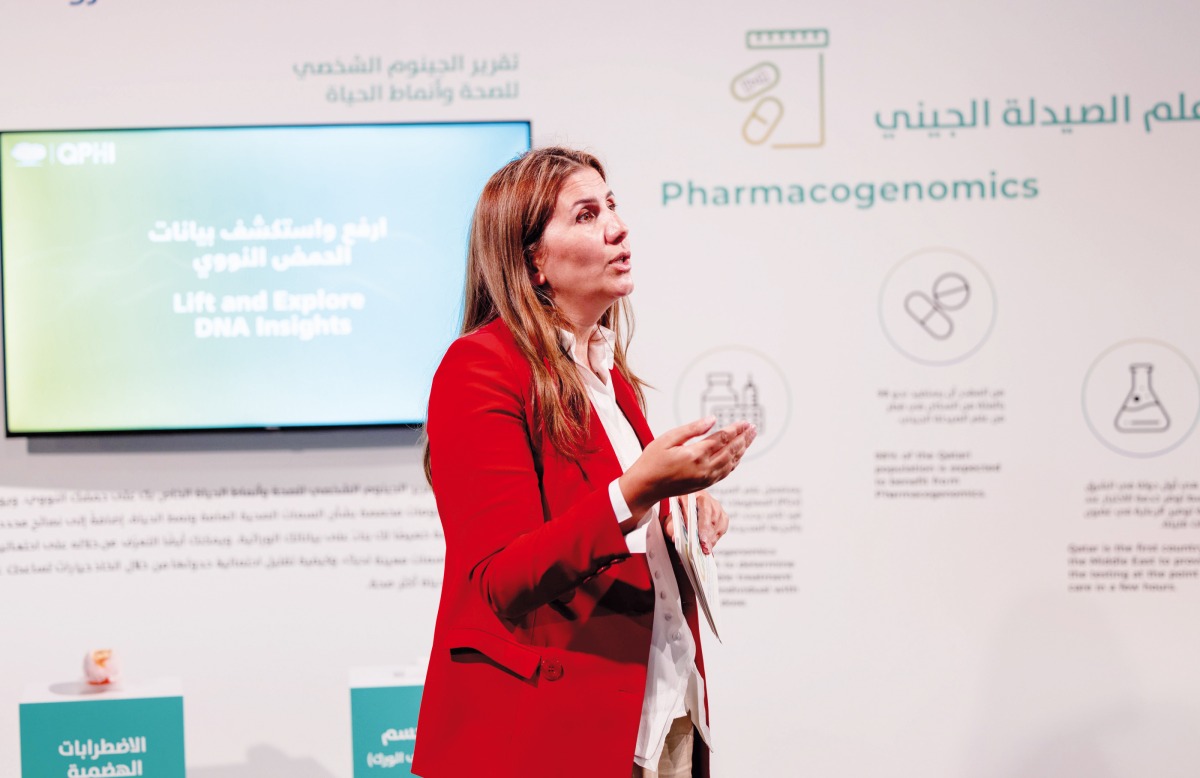Doha, Qatar: Qatar Foundation’s Qatar Precision Health Institute (QPHI) is leading the shift towards preventive healthcare. It empowers individuals with genomic information to make informed decisions about their health and well-being and helps them live longer and healthier lives.
An exhibition on QPHI yesterday highlighted how advancing precision health is expected to impact healthcare outcomes and overall well-being significantly.
It also showcased Qatar’s pioneering role as the first country in the region to establish a population-based genome program, reflecting its commitment to advancing genomic research and personalized healthcare.
The launch of QPHI marks a “new era of precision medicine,” said Dima Darwish, Head of Genomic Education, during a media tour of the exhibition at the Qatar National Convention Centre (QNCC).
Qatar Biobank (QBB) and the Qatar Genome Programme (QGP) have embarked on a journey over the past decade, laying the groundwork for QPHI.
“In the last ten years, we have been harnessing a massive wealth of data and accordingly performing research on international priorities to serve the people in Qatar and the region,” said Darwish, adding that the population cohort study has registered 47,000 participants and sequenced over 40,000 whole genomes.
She said that initiating the population-based genome program, significant research achievements, and attaining ISO Biotechnology certification position Qatar as a regional precision health research leader.
The exhibition was divided into five sections: a QPHI timeline, impactful projects, technology partners, patient stories, and the future of QPHI.
The segment on the impactful projects showcasing QPHI’s initiatives and research endeavors such as the BRCA Gene Mutations study investigate genetic predispositions to breast and ovarian cancers among Qatar’s population; Pharmacogenomics initiative which utilizes individual genetic information to optimize medication selection and dosing; Wellness Reports which provide insights into an individual’s genetic makeup, predispositions to diseases, response to medications, and lifestyle factors; the first Qatari Gene Chip, translating genomic research outcomes into clinical care deliverables specific to the Qatari people and Arabs; and the Catalyst, an in-house solution, that streamlines sample management from collection to distribution, aiming to extend its reach to international biobanks and research institutions.
Members of the media can also explore the Genome Heroes edutainment app, which is available in both Arabic and English. This app allows young players to learn about genome science in a fun and interactive way.
Speaking about the future of QPHI, Darwish said that the work in precision health is aligned with national efforts to deliver better healthcare, increased value, and well-being.
She said the efforts are focused on preventive health, diagnosis, and treatment, and translating research into practice.
Read the full article here











